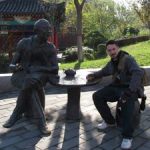- North Korea offers freedom of religion to its citizens on paper but not in practice.
- It has imprisoned tens of thousands of Christians, according to a State Department report, citing NGO research.
- The recent report reveals executions and imprisonment for life for people caught with religious materials.
North Korea is notorious for the cruelty it inflicts on people deemed undesirable by the state. In the Hermit Kingdom that prizes weaponry over its own people, many of whom are starving and live in abject poverty, tens of thousands of Christians are said to be languishing in prisons.
A recently released Department of State report notes that while North Korea constitutionally allows for religious freedom, there is no such thing in practice.
The constitution vaguely states that religion must not harm the state or social order, giving authorities room to target those who seek to openly follow their faith.
The report from the State Department's Office of International Religious Freedom, citing research conducted by non-governmental organizations which have gathered testimony from defectors, says as many as 70,000 Christians have been imprisoned in camps along with those believers from other religions.
One NGO, Open Doors USA, has reported that for Christians in North Korea, life is a "constant cauldron of pressure" and "capture or death is only a mistake away."

As State highlights in its report, North Korean government documents state that "freedom of religion is allowed and provided by the State law within the limit necessary for securing social order, health, social security, morality and other human rights."
Anything beyond that can land citizens in deep trouble.
People who have been arrested for religious crimes have reportedly faced detention and forced labor, torture, sexual violence, and death.
Christians are considered a "hostile class" in the songbun system, in which people derive status from loyalty to the state and its leadership. Christians, ODUSA reported, are regarded as the lowest in society and are constantly "vulnerable and in danger."
The Department of State, pulling from information collected by NGOs, noted that an entire family, including their two-year-old child, was imprisoned following the discovery of their religious practices and possession of a Bible.
The family, which was most likely targeted by the Ministry of State Security that handles roughly 90 percent of these cases, was sentenced to life in prison.
A report from the NGO Korea Future documented a shocking incident in which a man caught praying was nearly beaten to death by guards. Another incident involved a Korean Worker's Party member who was found with a Bible, taken by authorities out to an airfield, and executed before a crowd of thousands.
North Korea celebrates the Kim family, specifically the current ruler, Kim Jong Un, and his late father and grandfather, Kim Jong Il and Kim Il Sung, above all, recognizing the Kim dynasty or Mount Paektu bloodline in ways reminiscent of deification.
The State Department report, pointing to Korea Future's research, says that the state ideology "Kimilsungism-Kimjongilism" has "many hallmarks of religion." It notes the state regards the two previous leaders as "extraordinary beings."
ODUSA has reported that Christian materials, including Bibles, are leftovers from the early 20th century up to World War II and are passed among believers. Though there have been reports of underground churches, it is unclear if these are active given that, as one defector said, "meeting other Christians in order to worship is almost impossible." Some even fear being reported by their own family members.
This situation has long been a problem in North Korea, and State noted that "multiple sources indicated the situation had not fundamentally changed since" the 2014 UN Commission of Inquiry report on human rights in the in North Korea was published. That report found that North Korea "denied the rights to freedom of thought, conscience, and religion" and engaged in "crimes against humanity."

